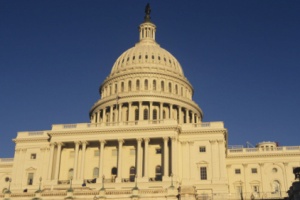 The REINS Act passed last week by the U.S. house represents either "an extreme attack" on the safeguards that protect the public or a move toward improving Congressional oversight of the regulatory process, depending on which end of the political spectrum is characterizing the issue.
The REINS Act passed last week by the U.S. house represents either "an extreme attack" on the safeguards that protect the public or a move toward improving Congressional oversight of the regulatory process, depending on which end of the political spectrum is characterizing the issue.
The Regulations from the Executive in Need of Scrutiny (REINS) Act, sponsored by Rep. Geoff Davis (R-KY), would require congressional approval of all new major health, safety and environmental rules. Under the bill, rules not approved by both houses of Congress within 70 legislative days would be tabled.
"If the REINS Act were enacted, it would undermine the ability of federal agencies to enforce existing laws and prevent the executive branch from carrying out its mission to protect the health and welfare of the American people," said Katherine McFate, Present of OMB Watch, a non-profit, Washington D.C.-based advocacy group.
McFate charged that the act is a "backdoor" way for some corporations to circumvent consumer protections. "Conservative politicians know Americans would not stand for the repeal of these critical safeguards for American families, so instead of taking direct action on protective legislation, they keep trying to make enforcement impossible."
However, the U.S. Chamber of Commerce applauded the House's action, saying the bill would restore the "historic relationship" between Congress and federal agencies.
Bruce Josten, the Chamber's executive vice president for Government Affairs, predicted that rules included in the recent health care overhaul and Dodd-Frank legislation would likely have adverse effects on job creation and economic growth, and that the REINS act would ensure more transparent, cost-effective regulations.
The Dodd-Frank Act, which was enacted in July of 2010, is intended to prevent another significant financial crisis by placing regulation of the financial industry in the hands of the government.
The REINS Act now moves to the Senate, where it is sponsored by Sen. Rand Paul (R-KY).
Controversial regulatory bill moves to Senate




